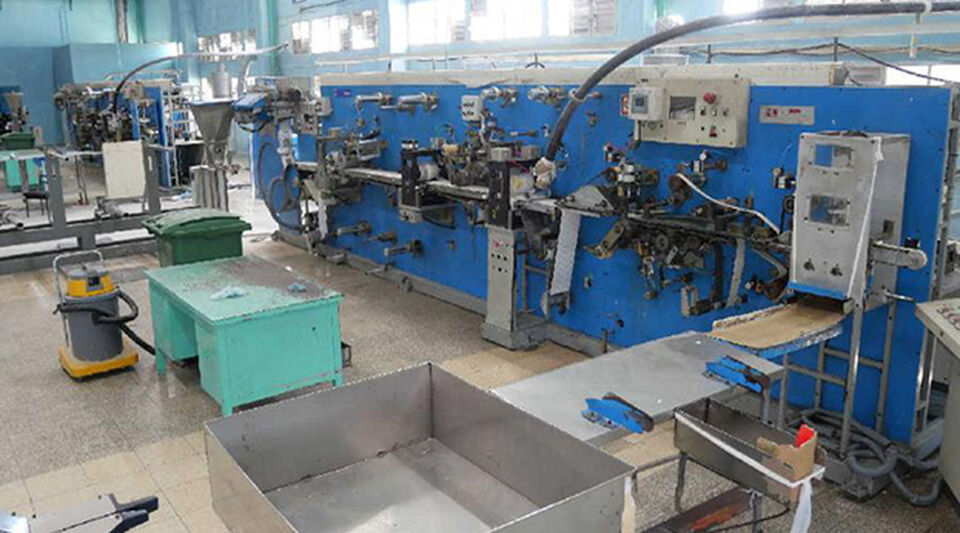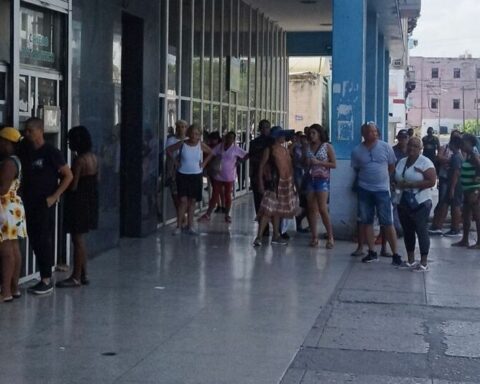The complaints of the Cuban women, who have not seen sanitary pads for sale in the warehouses since last year, have an official explanation this Thursday. The Mathisa state monopoly factory in Sancti Spíritus stopped its production lines in January due to lack of raw materials and money to buy more.
The director of the Business Unit, Ángel Pozo González, assured this Thursday to the provincial newspaper Escambray that the only hope to resume manufacturing it is the arrival of a polyethylene container next July and he warned that the product will remain scarce in pharmacies.
The collapse of the Cuban economy weighs on the productive activity of Mathisa, which in 2021 was described by the provincial press as a brand new plant with excess inventory due to distribution problems. Barely two years later, she finds herself paralyzed due to a lack of raw materials, particularly polyethylene, which is used to make the plastic lining the pad.
“We consumed one hundred percent of the raw material that we had in the warehouses because there was a deficit of the product and we tried to advance the delivery cycles”
Mathisa works only with imported raw materials, but the first months of the year there were “limitations” with financing, recognized Pozo González, which makes it difficult to import inputs. The manager assured that the authorities have approved the budget to buy more inputs and the company is waiting for the suppliers to start sending the material next month.
There are suppliers from Mexico and Finland, and the official acknowledges that the entry of materials will be staggered. Even so, he assured that the plant is ready to immediately start production in up to three daily shifts to reach the production quota of more than 4.5 million packages for this year.
Before stopping, the plant was operating at its best capacity and in the few days it was active in January, 560,000 packages were produced, very close to the goal set for the first quarter. “We consumed one hundred percent of the raw material that we had in the warehouses because there was a deficit of the product and we tried to advance the delivery cycles,” explained Pozo González, who acknowledged that all the units have already been distributed and are not available in the market.
In addition to Sancti Spíritus, Mathisa supplies the provinces of Matanzas, Villa Clara, Cienfuegos, Ciego de Ávila and Camagüey, with six varieties of the intimate Mariposa, which are usually sold in pharmacies or destined for electronic commerce in Caribbean chain stores. and Cimex. However, the manager warned that production will be much lower than the 10 to 14 million packages that have been manufactured in previous years.
What the official newspaper did not talk about at any time was the Vietnamese company established in the Mariel Special Development Zone since 2019, Thai Binh, whose products are sold in dollars
Mathisa’s pads do not enjoy a good reputation. Customers complain that the cover is not smooth to the touch and tends to move around despite having wings. The poor quality of the glue also conspires against them staying in place and they are not absorbent enough, so more units need to be used than with those of other brands.
While they wait for the materials to arrive, the company has suspended 40 workers, relocated 50 out of the unit and left 20 in charge of factory maintenance. Pozo González assured that the outlook is no different in the other two sanitary plants from Mathisa, one in Granma and the other in Havana.
It is not the first time that Mathisa, which each year delivers a little more than 42 million physical units to the market, has to stop its plants due to lack of supplies. In 2018, the state company explained that eight of the 10 raw materials it needs to make the pads are imported from Spain, Italy and China, and only the containers and packaging come from the domestic market.
The problems are accumulating and in pharmacies it is increasingly difficult to find rationed toilets, for 1.20 pesos a monthly package, while on the black market prices range from 200 to 250.
What the official newspaper did not talk about at any time was the Vietnamese company established in the Special Development Zone of Mariel since 2019Thai Binh, whose products are sold in dollars and on-line, through pages in which emigrants buy products for their relatives on the Island.
________________________
Collaborate with our work:
The team of 14ymedio He is committed to doing serious journalism that reflects the reality of deep Cuba. Thank you for accompanying us on this long road. We invite you to continue supporting us, but this time making you a member of our newspaper. Together we can continue transforming journalism in Cuba.








